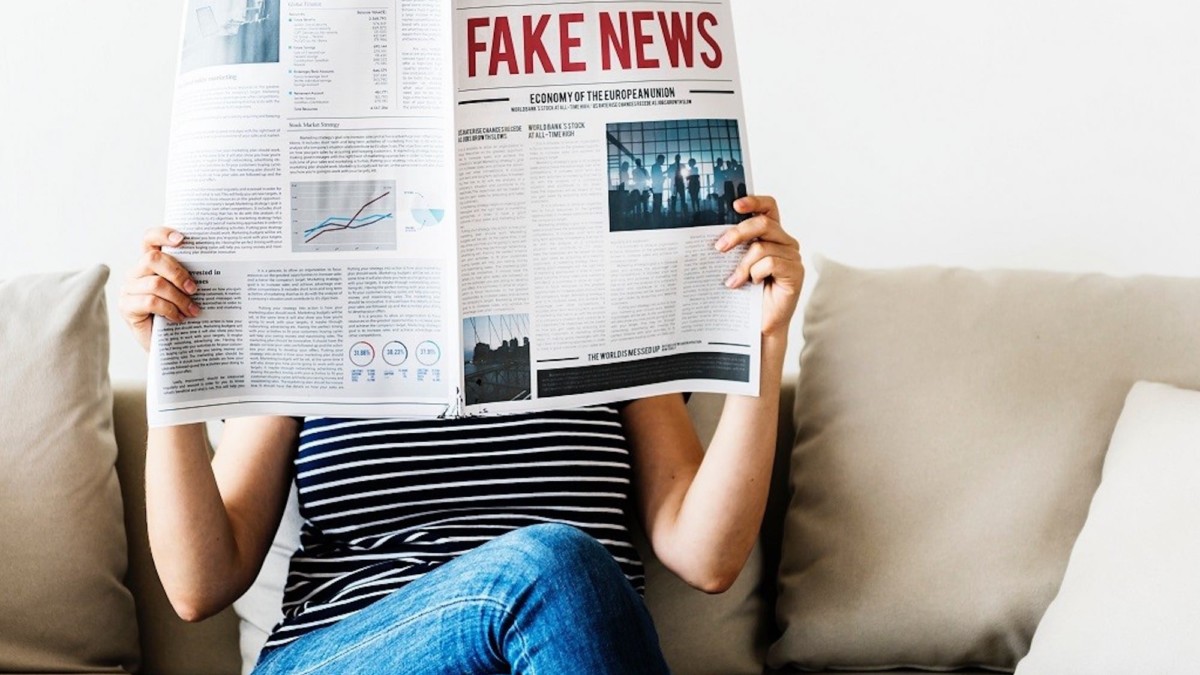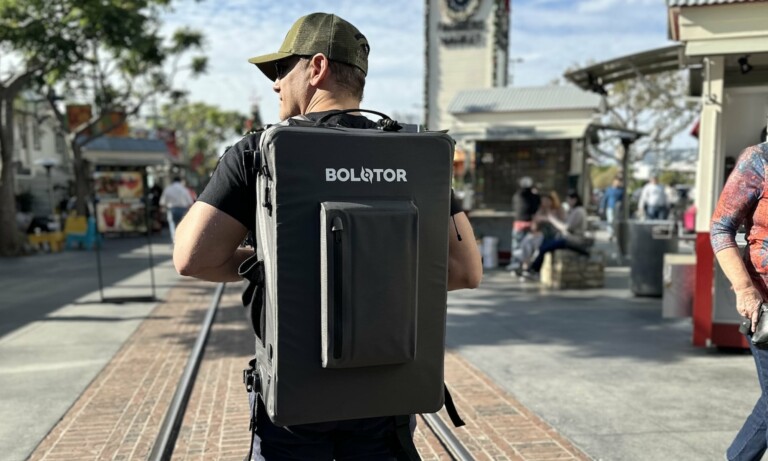Coronavirus misinformation – how tech companies are dealing with it
There’s no way around it; we’re dealing with a coronavirus pandemic. And whether you’re working from home this week or bravely heading to your job, as usual, we’re sure you’re scrolling through social. However, social media has become awash in misinformation about the coronavirus since the virus left China. While tech brands have ignored political and civic distortions on their platforms in the past, they’ve shown remarkable motivation in dealing with coronavirus misinformation.

This week, with people working from home, kids home from school, and all social events canceled, we’ll be scrolling on our devices from our home-office setups more than ever. However, we know that coronavirus misinformation is rife online. Even if it’s coming from our dear aunts and uncles. Luckily, while they’ve ignored plenty of misinformation in the past, this time tech brands are actually trying to deal with coronavirus misinformation head-on.
What are the rumors?
According to the New York Times, coronavirus rumors run the gamut from secret government labs in China to quack medicines, gels, and powders that immunize against the disease. Then there were claims that Taiwan was hiding virus deaths and that the situation there was spinning out of control. Also, the Italians, someone said, were marching in the streets complaining about Chinese people bringing the virus to their country. They were all untrue. What is true, however, are tech companies’ efforts to combat coronavirus misinformation in light of a deadly illness.

Coronavirus misinformation is being dealt with by tech companies
How is Google handling inaccurate information?
Long opposed to editorial intervention, even Google, according to The Verge, is coming around to the idea during a crisis. Earlier, the search giant had begun directing coronavirus searches to the World Health Organization. Now it has gone further as reported by Mark Bergen and Gerrit De Vynck in Bloomberg:
“Google searches related to the virus now trigger an ‘SOS Alert,’ with news from mainstream publications including National Public Radio, followed by information from the U.S. Centers for Disease Control and Prevention and the World Health Organization displayed prominently. In contrast, a recent search for ‘flu season’ showed the website verywellhealth.com at the top, while another search for ‘flu’ produced tweets, including one from U.S. President Donald Trump comparing coronavirus to the common flu. […]”

People wearing masks during the coronavirus pandemic
YouTube removes videos that promote false cures
Also, Google’s video service, YouTube, is trying to quickly remove videos that claim to prevent or cure the illness without medical treatment. Additionally, the Google Play App has banned some virus-related apps. The developers say they are only trying to help. Google thinks otherwise.
The Verge also reports that Google is turning down revenue. The tech publication cites another recent memo that Google has blocked tens of thousands of ads that effectively capitalize on the virus. The company has also stopped ads from YouTube videos that discuss COVID-19. Meanwhile, they’ve given governments and NGOs free ad space on the video service.
How is Facebook dealing with disinformation?
For its part, Facebook is taking many of the same steps as Google. In a blog post, Facebook writes that since the World Health Organization called the coronavirus a public health emergency in January, the company has taken several steps.
First, the company has removed misinformation and harmful content about COVID-19 on its platform. Instead, when people search for “coronavirus” on Facebook, the platform connects them to accurate information. This would be in the form of reliable sources like the WHO and local health authorities. The company has also banned ads that are intended to create panic. They also forbid ads that suggest that particular products offer prevention or a cure from the illness. Along with that, Facebook has also removed ads and listings that sell medical facemasks. This is in an effort to discourage stockpiling. Like Google, Facebook has offered the WHO as many free ads as they need with company support.
Finally, according to Consumer Reports, Facebook is unique in the tech world for seeking feedback from outside fact-checking organizations such as PolitiFact, the Associated Press, and Reuters. These organizations can label ideas in public posts as false. When this happens, Facebook can label a post as one that contains false information. This limits its spread on newsfeeds and groups.
What about dishonesty on Twitter?
For its part, Twitter is taking the same actions as Facebook and Google. In a statement, the company says, “The power of a uniquely open service during a public health emergency is evident. The speed and borderless nature of Twitter presents an extraordinary opportunity to get the word out and ensure people have access to the latest information from expert sources around the world.
“To support that mission, our global Trust & Safety team is continuing its zero-tolerance approach to platform manipulation and any other attempts to abuse our service at this critical juncture. At present, we’re not seeing significant coordinated platform manipulation efforts around these issues. However, we will remain vigilant and have invested substantially in our proactive abilities to ensure trends, search, and other common areas of the service are protected from malicious behaviors.”

Newspaper highlighting coronavirus updates
So, for the moment, Twitter says that it does not see any significant manipulation of their platform. This doesn’t mean that Twitter doesn’t contain coronavirus misinformation. It just means that the company hasn’t detected any intentional manipulation from political groups or campaigns.
TikTok upholds its community guidelines
Another social platform tackling coronavirus misinformation is TikTok, a Chinese-owned video sharing service that’s popular among teens. Recode says that beginning in late January, TikTok started issuing notifications to users when they searched for “coronavirus” in the app. The message asks users to consult “trusted sources” like WHO for the most recent and accurate information regarding the virus. It also asks users to report on content that goes against its community guidelines.
In a statement to Recode, TikTok confirmed that its guidelines “do not permit misinformation that could cause harm to our community or the larger public…” They added, “[w]hile we encourage our users to have respectful conversations about the subjects that matter to them, we remove deliberate attempts to misrepresent authoritative sources of news.”
What does the future hold for tech companies and false claims online?
The coronavirus has pushed tech companies to confront a problem systemic to their platforms—the ability to pass off lies as truth. There is no easy fix since even the measures they’ve enacted won’t catch everything. But the bottom line is, in terms of coronavirus, they are taking steps in a positive direction. Consumer Reports says that “The tech platforms’ weapons in the fight fall into three main categories: promoting good information, demoting bad information, and keeping misinformation from appearing in the first place. And it’s what we saw when we examined the companies’ response to coronavirus misinformation. It’s a nice direction tech companies are headed.”
However, could this be the start of a more significant trend toward rooting out all lies and outlandish claims on the platforms? We hope so. Consumer Reports quotes Mellissa Ryan, CEO of CARD Strategies, a consulting firm that researches misinformation, “If the coronavirus playbook were reapplied broadly, you would see all the tech companies take a hard line on untrue content. They would be able to do it without political consideration.”
Tech companies have influences
Yet the companies have been hesitant to give the same consideration to political matters and scientific ones with political leanings. Climate change is one example. Here the scientific evidence is concrete; climate change is with us, and we are dealing with its effects every day. However, you won’t see any pop-up notifications or warnings redirecting you to the EPA’s website whenever you search for “climate change.” In fact, depending on your search history, one of your suggested sites might even be an alternative news site about climate change. This is disappointing, to say the least.
Sam Gregory, a global misinformation expert at the nonprofit Witness said to Consumer Reports, “Political influence questions definitely play a part” in the companies’ less rigorous policing of climate misinformation. Additionally, loose policies can extend further into the political realm. This is how politicians can get away with telling lies in an ad that later gets posted online.
Don’t be part of the problem
We’d all like to think that we wouldn’t fall for false claims and coronavirus misinformation. Yet the problem is there for a reason. We’re all susceptible. Before you share something with your followers, or even your family and close friends, keep these guidelines from ABC News in mind:
Consider the following questions before sharing sensational content:
- Is this the original account, article, or piece of content?
- Who shared this or created it?
- When was this created?
- What account is sharing this? When was the account created? Do they share things from all over the world at all times during the day and night? Could this be a bot?
- Why was this shared?
ABC News encourages readers to remember that the creators of disinformation are trying to elicit an emotional response. So if you read something that immediately makes you want to share it, don’t. Wait a while. Dig deeper. You were good at school, weren’t you? And find out if that information is coming from a reputable source. We all remember our high school English and History teachers’ demands to cite our sources. Now, in the face of coronavirus misinformation, is the time to revisit those lessons.
















